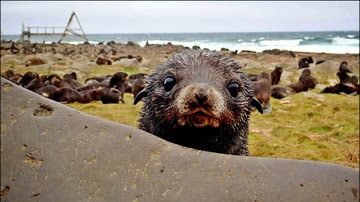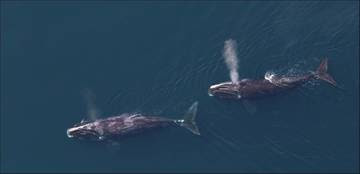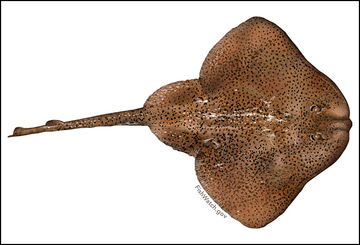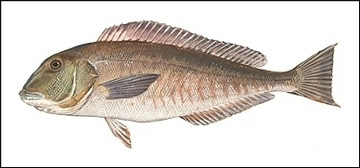HIGHLIGHTS

NOAA Announces New Partnership with Recreational Fishing OrganizationsNOAA Fisheries and NOAA’s Office of National Marine Sanctuaries announced a formal partnership with four leading outdoor recreation interest groups regarding sustainable fishing and boating activities in federal waters, including national marine sanctuaries. The agreement establishes a framework for communication, education, and collaboration.

NOAA Fisheries Publishes National Bycatch ReportNOAA Fisheries has published the U.S. National Bycatch Report First Edition Update 3, which provides bycatch estimates for fish, marine mammals, sea turtles, and seabirds in major U.S. fisheries for 2014 and 2015. Note that this report provides indicators of bycatch levels, rather than definitive estimates by fishery.

Wanted: Feedback on NOAA Fisheries’ WebsiteWe are seeking volunteers for a 20-minute call at your convenience to learn how we can make the NOAA Fisheries website better for you. Your direct feedback will help us with new features and future updates. If you are interested in participating, please tell us a little about yourself by completing this online form.
Alaska

Ocean Acidification Could Affect Larval Pacific CodIn a recent laboratory study, NOAA scientists and partners demonstrated that larval Pacific cod respond to elevated carbon dioxide levels differently at different stages of development. High-latitude oceans—where Pacific cod and other commercially important fish species occur—are expected to be particularly vulnerable to ocean acidification.

New Technology for Marine Mammal MonitoringNOAA Fisheries scientists and partners are developing advanced imaging technology that will enable drones to collect information essential for managing Alaska’s depleted northern fur seal population. Using drones will dramatically reduce the expense and risk of monitoring fur seals and virtually eliminate disturbance to this sensitive population.
West Coast

Pacific Islands

The Secret Life of Kona CrabsAlthough today it is a relatively small commercial fishery, Kona crabs have been fished in Hawaii since the early 20th century. Recently, NOAA scientists at the Pacific Islands Fisheries Science Center conducted their first stock assessment of the main Hawaiian Islands Kona crab fishery, finding a healthy population.

Faces of Whale Conservation in the Pacific IslandsNOAA Fisheries’ Pacific Islands Region celebrated Whale Week with a series of interviews with whale conservation partners. Meet Robin Baird, of Cascadia Research Collective; Lars Bejder, of the Hawaii Institute of Marine Biology; Marc Lammers, of the Hawaiian Islands Humpback Whale National Marine Sanctuary; and Adam Pack, of University of Hawaii at Hilo, and learn about their contributions to whale science and conservation.
Southeast

Proposed Rule for Snapper-Grouper Fishery –
Open for Public CommentBy March 6, please submit your comments on a proposed rule for Abbreviated Framework Amendment 2 to the South Atlantic Snapper-Grouper Fishery Management Plan. The rule would increase annual catch limits for South Atlantic vermilion snapper and reduce catch limits for South Atlantic black sea bass in response to recent population assessments.


Atlantic Cobia Management Transferred to Atlantic States Commission NOAA Fisheries announced a final rule removing Atlantic cobia from the Coastal Migratory Pelagics of the Gulf of Mexico and Atlantic Region Fishery Management Plan. The fishery will now be managed under the purview of the Atlantic States Marine Fisheries Commission, as the majority of Atlantic cobia landings occur in state waters.

Mississippi Acquires 1,500 Acres of Coastal HabitatIn late December, the State of Mississippi acquired approximately 1,500 acres of coastal wildlife habitat around Grand Bay in Jackson County. Expanding the permanent protection of critical ecosystems along the Mississippi Gulf Coast will help restore injuries caused by the Deepwater Horizon oil spill in 2010.
Greater Atlantic

Watch Out for Whales South of NantucketNOAA Fisheries extended a voluntary vessel speed restriction zone previously established south of Nantucket to protect a group of 19 right whales sighted in the area on February 17. This zone is now in effect through
March 5.

Proposed Scallop Measures – Open for CommentBy March 7, please submit your comments on a proposed rule to implement Framework Adjustment 30 to the Atlantic Sea Scallop Fishery Management Plan. The proposed rule sets management measures for the Atlantic sea scallop for the 2019 and 2020 fishing years.

Revisions to Northeast Skate Management PlanNOAA Fisheries implemented Framework Adjustment 6 to the Northeast Skate Complex Fishery Management Plan. This action reduces the management uncertainty buffer, allowing for an increase in the total allowable landings in the wing and bait fisheries for the 2018 and 2019 fishing years.

Blueline Tilefish Specifications 2019–2021NOAA Fisheries announced final specifications for the 2019–2021 Mid-Atlantic blueline tilefish fishery. These measures apply in federal waters north of the Virginia/North Carolina border. (Blueline tilefish south of this border are managed by the South Atlantic Fishery Management Council.)
| 
No comments:
Post a Comment